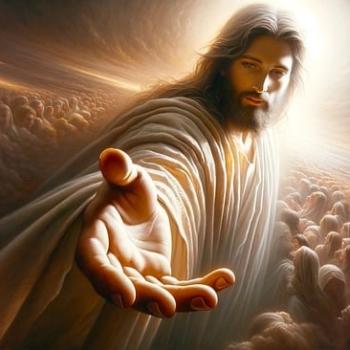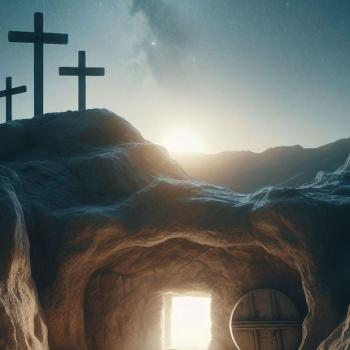The disciples will receive a reward for what they have given up, but they are not the only ones. Everyone who sacrifices family relationships or property for Jesus' sake will be rewarded a hundredfold and inherit eternal life (19:29), the gift the rich young man craved that drove him to seek out Jesus (19:16). To be told that the first shall become last is to be told to beware thinking you are better than another because you have given up more or because you have given it up sooner.
A Strange Story
The parable of the workers in the vineyard declares the sovereign grace and good will of God, who, in Jesus' ministry, welcomes the 'late-comers' into the Kingdom. It is addressed to those who take issue with the acceptance of the despised, the outcasts and sinners in the Kingdom of God, whether they be contemporaries of Jesus, members of Matthew's church or our own. Jesus probably used the parable to support his own keeping company with tax collectors and sinners. Even though these people had come late in life to their service of God, they would be accepted into the kingdom.
Jesus is not teaching a principle of economics, but rather a spiritual principle. The owner claims the right to pay the workers not on the basis of their merits but on the basis of his own compassion. Those who worship a God of compassion should imitate his generosity, not begrudge it.
For Jesus the parable teaches that the gift of eternal life is not the reward of human merit, but a free gift of divine grace. The sacrifices of the followers of Jesus will be honored by God, but the reward will so far outstrip the sacrifice that it can only be called sheer grace, something God gives us or brings about in our lives that we cannot earn or bring about on our own steam. Paul affirms something similar when he writes, "I consider that the sufferings of this present time are not worth comparing with the glory about to be revealed to us" (Rom. 8:18). Though some followers of Jesus then and now may feel their long, costly services qualifies them for a higher rate of pay in the kingdom, all must humbly acknowledge that we are like the 11th hour workers. None of us deserves the glorious future God has prepared for us.
Matthew uses Jesus' parable to speak to his context. The vineyard is an often used image from the Old Testament and Jewish teaching and usually refers to Israel. For Matthew the vineyard is the Christian community. Those who join it late are treated as equal in privilege as those who joined it early. The parable reminds us of that of the prodigal son: the grumbling of the full-day workers reminds us of the grumbling of the elder brother (Lk. 15:29). Verse 15 literally asks, "Is your eye evil?" The metaphor of the evil eye was often used to express an attitude of grudging, envy, or jealousy.
The parable challenges Jesus' disciples in their spiritual arrogance. It challenges Matthew's Jewish Christians who oppose the entry of Gentiles into the blessings of the kingdom. It challenges us today in our churches as we begrudge the joy of the gospel to those whom we deem less industrious, less committed, less worthy of it than we are.
The character(s) with whom we identify when we read a story tells us a great deal about ourselves and our self-conceptions. I suspect most of us identify with the workers who started out early in the morning and, on grounds of economic fairness, feel uncomfortable with this parable. What if the truth was that we ought to identify with those who started last? Only when we shed our spiritual arrogance can we experience the good news of this quirky parable, rather than being offended by its economics.
This came home to me when I was asked to perform a funeral recently. It was the funeral of Bill, the father of a church member. I knew his daughter and her husband and family but had only met Bill a couple of times at social gatherings at their home. He had been a vital man with a good sense of humor. He had been a successful salesman and made an excellent living, enjoying his retirement and frequent golf games until he had been stricken with Alzheimer's two years before. Since I had not known Bill well, I asked if I could meet with the family and find out what their loved one had been like firsthand.
So I sat around a kitchen table one Saturday afternoon with Bill's three children and their spouses, his niece, and nephew. I began by asking, "If you could express in one sentence what you learned from Bill, what would it be?" Nobody had to think about the question very long. "Give without counting the cost and without expecting a return," one of them said quickly. And that sentiment was echoed all around the table.
Then they started giving examples. "He put me through school," said his niece. "I didn't even ask; he just knew my folks couldn't do it." "He bailed me out of jail," said his son. "He never gave up hope in me," said his nephew. "He gave me the gift of somebody believing in me." Example after example of a man who knew how to give without counting the cost, without expecting a return. "He always made sure his children's needs were met," his daughter said, "but sometimes, I admit we felt jealous when he would give time and money to people who weren't in our immediate family. Now I realize that his example of giving was his greatest gift to us."
Do you think that someday all of us who find this parable objectionable will say the same thing about Jesus?





